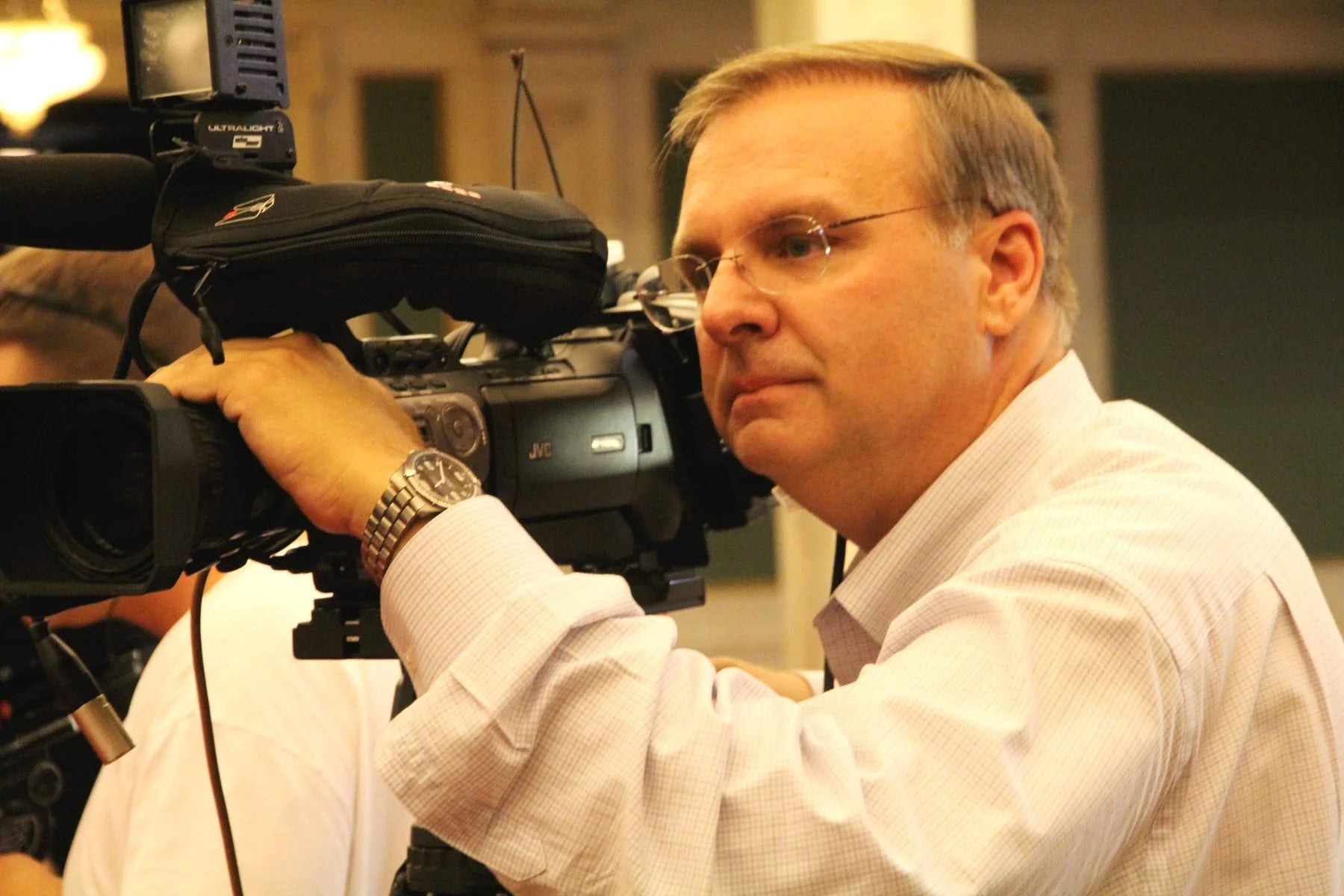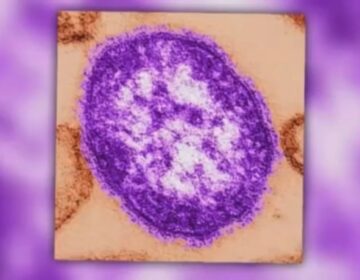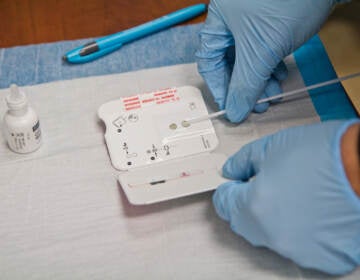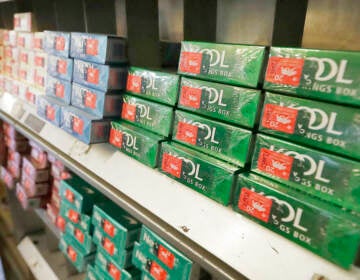New anti-smoking campaign in Philly targets groups that smoke the most
Restaurant workers, members of the LGBTQ+ community, and veterans are among those targeted by a new anti-smoking campaign in Philadelphia.
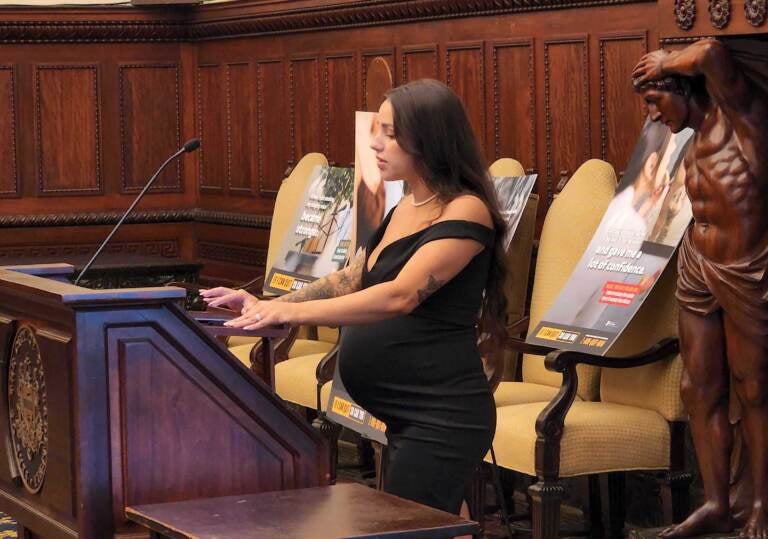
Valerie Andreyeva, who was featured in the anti-smoking campaign, was able to finally quit due to her pregnancy. (Tom MacDonald / WHYY)
The Philadelphia Health Department has unveiled a new ad campaign designed to target the groups in the city that smoke the most.
Even though smoking is among the biggest killers in the city, Health Commissioner Dr. Cheryl Bettigole said it’s often overlooked, especially as other health emergencies have taken the spotlight in recent years.
“Smoking contributes to the deaths of thousands of Philadelphians each year, about 3,700,” Bettigole said. “It’s not new, it’s not flashy, there’s no vaccine against it, so lots of people forget it is out there and continues to be one of our biggest killers.”
Ryan Coffman, tobacco control program manager for the city health department said the campaign is crafted to target the groups that smoke the most.
“Tobacco use rates remain higher for LGBT communities, veterans, individuals living with psychiatric illness and substance use disorders, and those working in the food, hospitality, and bar industries,” Coffman said.

He said some of the communities highlighted in this campaign continue to smoke at such elevated levels because of “perceptions both inside and outside these communities that tobacco use is common and even necessary.”
Camilla Al-Roka is one of those featured in the commercials. She is in the restaurant industry and said smoking is often the only time workers are able to get a break. She said she had a tough time stopping because it was considered normal in her industry
Al-Roca had a moment where she decided to stop smoking. “At one point I saw nicotine-stained water dripping down the side [of her car]. I was nauseated to think I’m putting this inside of my lungs.”
Valerie Andreyeva is also featured in the ad campaign. She’s currently pregnant, which motivated her to quit.
She called smoking a “dark addiction” that led her down the path of self-destruction including substance abuse. The pregnancy made her stop, so her baby was “safe and protected.”
Andreyeva promised to be careful that her child doesn’t go down the same road as her. “I don’t want my child to be exposed to the negative side effects, especially if I can prevent it,” she said.
Mike Gnatovskiy shared his struggles with substance abuse as part of the campaign. He said of all his addictions, smoking was the last to go because it was so commonplace in his family. He started smoking when he was 11, and said it was the gateway to other drugs that he became dependent upon.
“During my ten years of countless overdoses, life started to seem pointless, and I finally came to my crossroad. I knew that enough was enough,” Gnatovskiy said. “In 2017, I made the decision to change my life and my long-wasted years of substance abuse. After multiple tries, I finally was able to stop using opiates”
Gnatovskiy said he stopped smoking by taking up new hobbies and going to the gym. He offered this advice to those who are thinking about quitting. “Stay free from all substances and you will live a better, happier, and healthier life.”
Phase one of the campaign will run from mid-July to the end of October and will feature testimonials from new moms, people in recovery, from those with substance use disorders, and a worker in the food service and hospitality industry.
Phase two will run from early September to the end of October and will add additional testimonials from the LGBTQ+ community, active-duty members, and veterans of the Armed Forces. The campaign cost of $475,000 is mostly supported by the federal tobacco settlement, although just over $100,000 in city general fund money will go towards the effort, which includes both traditional and non-traditional media.
WHYY is your source for fact-based, in-depth journalism and information. As a nonprofit organization, we rely on financial support from readers like you. Please give today.


